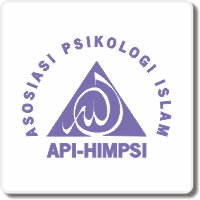Optimism in Orphanage Children Reviewed from Self-Acceptance and Self-Esteem
DOI:
https://doi.org/10.32923/psc.v6i2.4120Keywords:
Optimism, Self-Acceptance, Self-Esteem, Orphanage, Orphanage ChildrenAbstract
Children in orphanages have different lives than children in general. Living in an orphanage certainly provides challenges for them. Despite the limitations of living in an orphanage, they are also required to continue to have dreams and aspirations for their future. This study examines the association between self-acceptance and self-esteem and their impact on optimism among orphanage children. The hypothesis posits a positive correlation between self-esteem, self-acceptance, and optimism in this particular context. The study employs three validated scales: the optimism scale developed by Scheier et al., the self-acceptance scale proposed by Berger, and the self-esteem scale devised by Rosenberg. Based on purposive sampling, the research participants were 254 children aged 12-18 living in orphanages located in Central Java. The findings reveal a significant positive correlation between self-acceptance, self-esteem, and optimism among the children in the orphanage setting, underscoring that elevated levels of self-esteem and self-acceptance among orphaned children correspond to heightened levels of optimism they possess.
Downloads
Published
Issue
Section
License
Copyright Notice
The Psychosophia: Journal of Psychology, Religion, and Humanity is under the Creative Commons Attribution 4.0 International (CC-BY 4.0) License, according to which:
1) Authors retain copyright and grant the journal the right to first publication, with the work simultaneously licensed under the Creative Commons Attribution (CC-BY 4.0) that allows the sharing of articles published with the acknowledgment of authorship and the initial publication in this journal.
2) The authors are authorized to make additional contracts separately for distribution of the version of the work published in this journal (for example, publication in an institutional repository or as a chapter of the book), as long as there is recognition of authorship and initial publication in this journal.
3) Authors are authorized and encouraged to publish and distribute their work online (for example, in institutional repositories or on their personal pages) at any time before or during the editorial process, as it increases the impact and reference of the published work.






